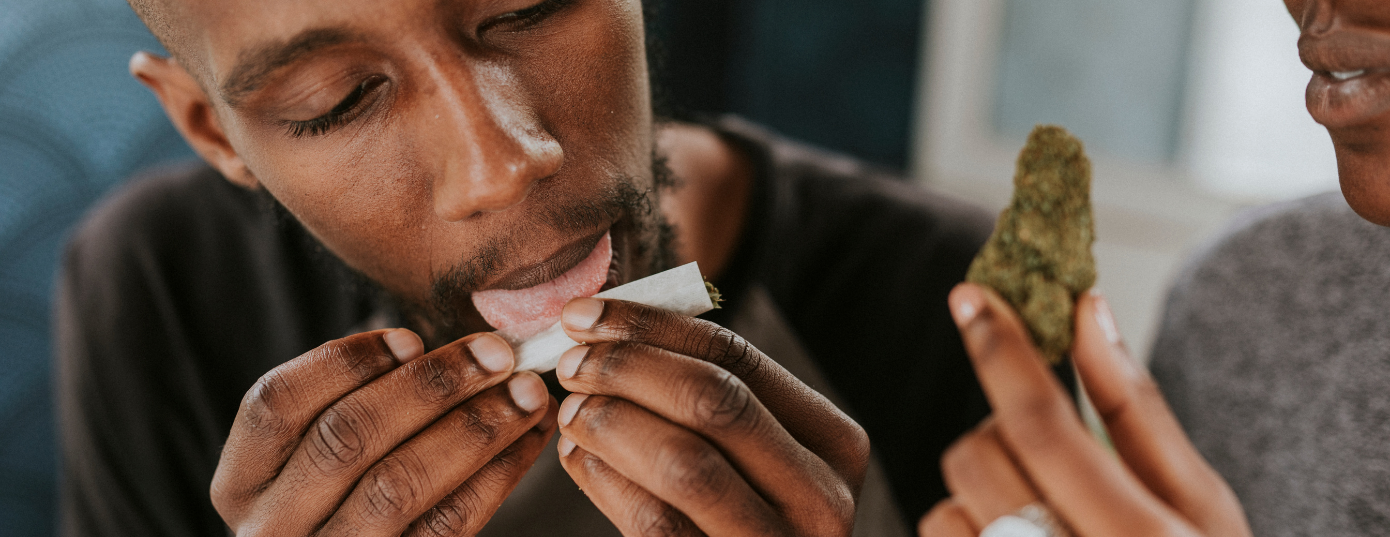The idea that marijuana can be considered a gateway drug is a controversial and debated topic everywhere, from the scientific community to your stereotypical group of stoner friends. This concept has always been a big part of the argument against the legalization of cannabis since forever, and although some studies suggest that weed use can be a risk factor for later use of other drugs, others suggest that this association may be due to elements that are beyond its scope, such as genetic and environmental factors. Truth to be told, the vast majority of people who use marijuana do not go on to use harder drugs, so… Ultimately, the question of whether weed is a gateway drug is complex and there is no simple answer.
However, if this is the first time you are hearing this argument, you might have a couple questions in your mind about the awesome plant that is weed. A gateway drug should worry you? Well, in general terms, these are substances, typically psychoactive drugs, believed to lead to the use of more dangerous or addictive elements. The idea behind the gateway theory is that consuming certain stuff, such as cannabis, creates a psychological and/or biological predisposition that makes a person more likely to try other drugs. The mechanism of that, some argue, is that using a gateway drug alters brain chemistry and increases the likelihood of progressing to stronger addictive substances, and thought to occur through a combination of biological and social factors, including changes in neurotransmitter function, social exposure to drug use, and the development of risky behaviors and attitudes. It can be good to detox sometimes, that’s what we are saying.
Nevertheless, it is important to note that the idea of a "gateway drug" has been widely debated in the scientific community. Some researchers argue that the association between gateway drugs and harder drug use is actually the result of the aforementioned shared risk factors, rather than a direct cause-and-effect relationship. And you probably know by experience that not everyone who uses a gateway drug goes on to use harder drugs, and not everyone who uses harder drugs starts with a gateway drug. Overall, the concept of a gateway drug remains a controversial topic, and the relationship between different types of use is likely influenced by a complex interplay of biological, environmental, and social factors. And to be honest, marijuana is not even the only substance that can be seen as a “gateway drug”; other examples are…
- Alcohol:
Some experts argue that alcohol can be considered a gateway drug because of its potential to lead to the use of other drugs. Like cannabis, alcohol is a commonly used substance that can be found in many social contexts.
- Nicotine:
Nicotine use can affect the brain's reward system in a way that may make it more susceptible to the effects of other drugs. Nicotine increases the production of dopamine, a neurotransmitter that plays a role in the brain's reward system and is also associated with the effects of other drugs.
- Prescription drugs:
The misuse of prescription drugs, particularly opioids has been linked to increased risk of using other drugs. After all, many prescription drugs have similar effects to illicit drugs, such as pain relief or mood enhancement, which can make people more curious about them.
- Inhalants:
Inhalants are chemicals that are inhaled to produce a mind-altering effect, and they can include household items such as paint thinner, glue, and gasoline. Inhalants are often readily available in households, arguably making them an easy point of entry into drug use.
- Hallucinogens:
LSD and psilocybin, are not typically considered gateway drugs because they have a lower potential for addiction and dependence compared to other drugs.
But even with this in mind, it's important to note that the relationship between different types of drug use is complex and influenced by a variety of factors. Some research even suggests that the concept of a "gateway drug" may be over-simplified, and that a more nuanced understanding of the factors that contribute to drug use is needed to give a definitive verdict. Interesting, isn't it?
Arguments against cannabis as a gateway drug!
While some scientists suggest that cannabis use may increase the likelihood of using other drugs, other research suggests that the relationship is not as clear-cut as previously thought. Ultimately, more research is needed to fully understand the relationship between cannabis use and other drug use. The idea of asking "Is weed a gateway drug" has been a controversial topic, and there are some arguments in favor of the idea that cannabis use may lead to use of other drugs:
1. Correlation does not equal causation:
While there is a correlation between cannabis use and later use of other drugs, this does not necessarily mean that using cannabis directly causes someone to use other drugs. It's possible that other factors, such as genetic or environmental factors, are responsible for the observed association.
2. The majority of weed users do not go on to use other drugs:
The vast majority of people who use cannabis do not go on to use other drugs. Therefore, while some people may use cannabis as a gateway to other drugs, it's not accurate to say that cannabis use is a direct cause of other drug use. Cannabis may be a substitute for other drugs: Some research suggests that cannabis use may actually decrease the use of other drugs by serving as a substitute for more harmful drugs, such as opioids or alcohol. Social and economic factors may be more influential: Social and economic factors, such as poverty, lack of education, or exposure to drug-using peers, may be more influential in determining drug use than the use of a specific substance, such as cannabis.
3. Cannabis legalization may reduce the gateway effect:
The legalization of cannabis could help to eliminate the need for people to obtain cannabis through illicit means, which may expose them to other illicit drugs. This could also lead to greater regulation of the cannabis market, which could help to ensure that people are getting a safer and more consistent product, reducing the risk of exposure to other drugs. And a greater education and awareness about cannabis use and its potential risks and benefits will help people make more informed decisions about their use of cannabis and potentially reduce any “gateway effects”.
All in all, for the time being, weed as a gateway drug is still something we don’t have a definitive answer for. There’s even some evidence to think that cannabis is good at combating other addictions such as alcoholism, but it’s still a good idea to be careful, not try anything you don’t feel comfortable consuming, and remember that weed is something to use when you want to chill and have a fun afternoon. Caution is always the priority!
Author: Shaggy


0 comments